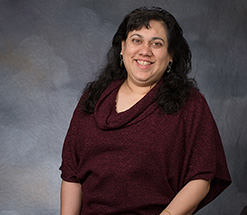As events rapidly unfold in Egypt, experts at 51łÔąĎÍř are discussing the groundswell of public dissatisfaction with that country’s democratically elected government, and how the Egyptian population now appears largely in favor of a military coup.
Bruce Rutherford, 51łÔąĎÍř associate professor of political science and director of Middle Eastern and Islamic civilization studies, is intimately familiar with the political situation in Egypt, and was in the country to observe the 2012 elections that resulted in a narrow victory by Muslim Brotherhood candidate Mohamed Morsi.
Now that the military says they have followed through in ousting Morsi, Rutherford said Egypt’s first experiment with democracy has failed.
“It’s not uncommon for countries undergoing democratic transitions to fail at their first attempt,” said Rutherford, author of . “What to look for in the next few weeks is whether or not we’ll see a second attempt. It doesn’t mean that democracy is forever dead in Egypt. It simply means this will be a longer and more complicated process. I think there still is reason for hope.”
, associate professor in history, and her husband , senior lecturer of Arabic, with 14 51łÔąĎÍř students to Egypt eight months ago as part of the extended study course.
Khan said she is not surprised by the massive protests demanding Morsi step down.
“The level of unhappiness that we saw when we were there was quite obvious. Our students noticed it,” Khan said, adding that there has been a steady decline in the nation’s economy and public safety since Morsi took power. “Outsiders tend to portray what was happening up until now as a secular vs. religious divide, but that is not what we saw. What we saw was the Muslim Brotherhood vs. everyone.”
Khan and Abdal-Ghaffar, both Egyptian dual citizens, regularly travel to the country and participated in the 2012 election. Since that time, Khan said Morsi’s government has acted as if it had a mandate, ignoring minority opinion.
Rutherford said the Brotherhood interpreted its electoral victories as a public endorsement to implement its specific vision of Egypt’s future. In particular, it drafted the new Constitution in a manner that excluded virtually all non-Islamists. This approach to governing left others out of the process and created widespread disenfranchisement.
“There were a lot of us willing to give the Brotherhood a chance,” Khan said. “They shot themselves in the foot.”
